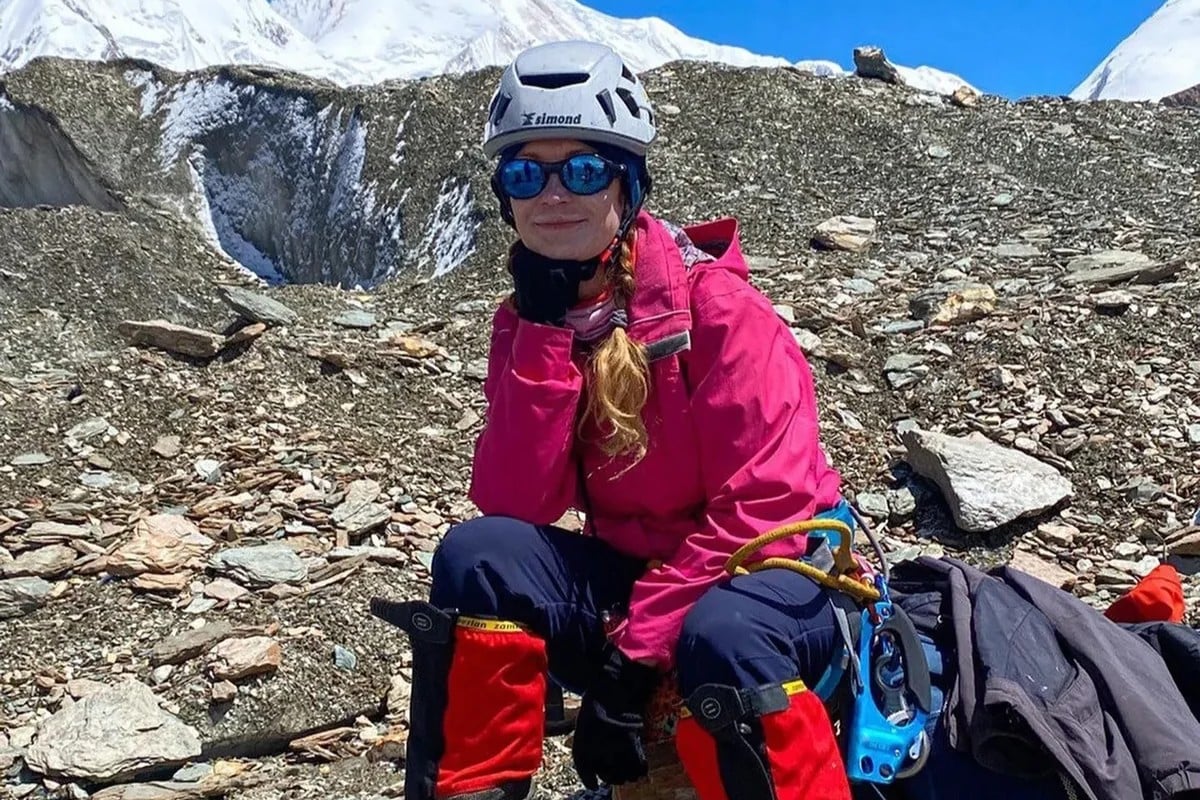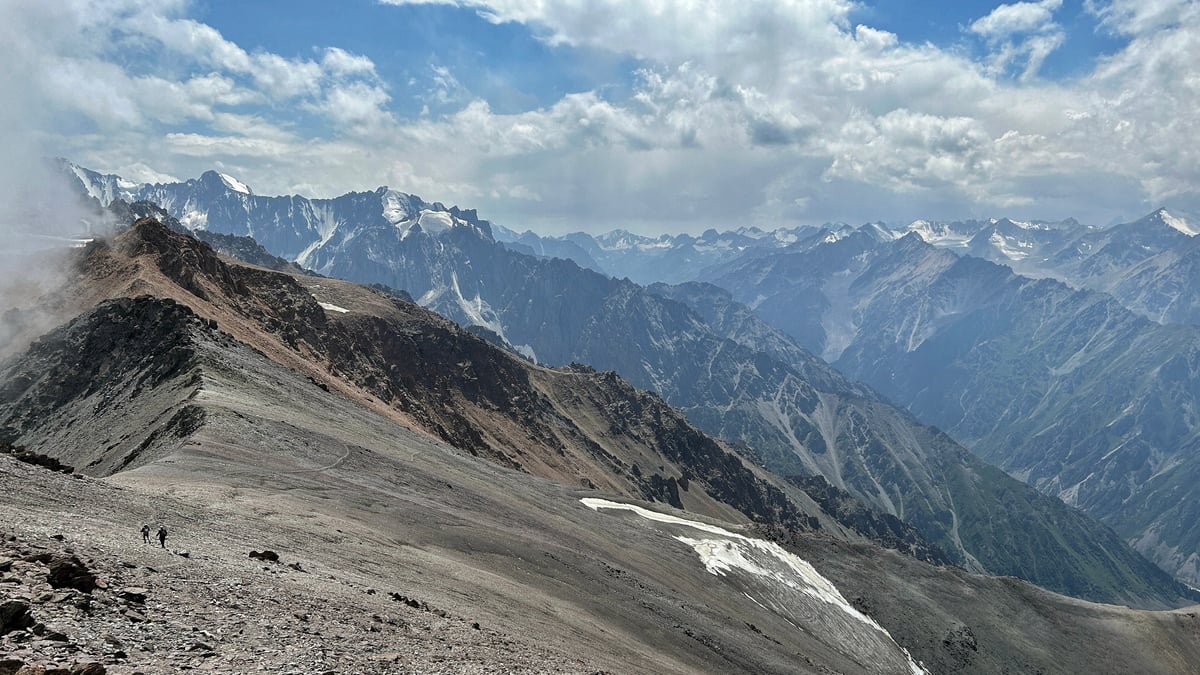
If you want to support independent women's media, become a Mamamia subscriber. Get an all-access pass to everything we make, including exclusive podcasts, articles, videos and our exercise app, MOVE.
Russian mountaineer Natalia Nagovitsyna is presumed dead after being stranded on Kyrgyzstan's highest and most unforgiving mountain for more than two weeks.
A military drone with thermal imaging capability found no signs of life in Nagovitsyna's tent after completing a fly-over.
It comes after rescue efforts were called off due to unforgiving weather.
On August 12, Nagovitsyna set out to conquer Pobeda Peak, also known as Victory Peak. Towering at 24,406 feet (around 7440 metres) — nearly as tall as Mount Everest — the mountain is known locally as Jengish Chokusu and sits in the Tian Shan range on the border with China.
For Nagovitsyna, an experienced climber who had spent years chasing summits, this was not her first brush with danger. Four years ago, she had refused to abandon her husband Sergei when he suffered a fatal stroke during their climb of Khan Tengri, another Central Asian peak.
"I am not afraid to die," she had said in a documentary at the time.
She stayed with Sergei through a blizzard until he passed away.
That resilience became part of her reputation amongst mountaineers. But her latest climb pushed her to the very edge of human endurance.
Watch: Natalia Nagovitsyna left stranded on a mountain. Post continues after video.





























































































